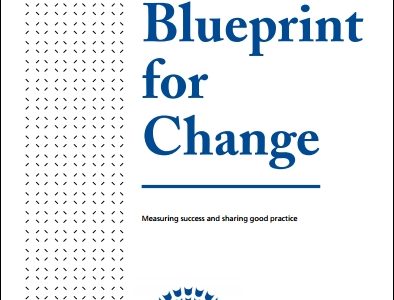Anyone with half an ear on the UK news over the last few days will know that George Osborne announced that he was investing further in, what he believes to be a critical area of concern for the UK economy – Infrastructure.
The Labour peer, Lord Adonis will be the chair of a new body called the National Infrastructure Commission. An initially confusing appointment as Lord Adonis is a staunch New Labour man but he is passionate about the fact that there must be alignment of planning, economic development and infrastructure as it’s critical not just to the country’s future prosperity but to social justice.
As John McTernan wrote in the Guardian recently: “Adonis knows that new roads, railways and power stations are not just projects in themselves; they are the engine of economic change. They take jobs to people, but they take people to jobs too.”
As Lord Adonis strives to ease the flow of new infrastructure projects through the system, he will be very aware of the huge skills shortages that blight the UK’s building industry. Research published by the Federation of Master Buildings in August 2015 suggests that two-thirds of small and medium construction firms have had to turn down work because they don’t have the staff to carry it out.
For five years Ethos has been creating sustainable solutions to complex challenges like the one facing the construction industry. Ethos is a network of social entrepreneurs and innovators who want to create better and more sustainable solutions to society’s biggest problems. They do this by putting people rather than corporations at the very heart of such challenges, and measure success by looking beyond the economic to consider impact on society and the environment.
So what better challenge for the company to step up to than matching clear and present desires for infrastructure growth to the availability of skills to deliver it?
Ethos’s most ambitious initiative yet, SkillsPlanner, is an innovative approach to solving skills shortages. SkillsPlanner is an internet platform that will allow stakeholders within the industry to share current and future skills supply and demand data, facilitating collaborative planning, training and brokerage to meet the industry’s requirements.
On the same day that George Osborne announced his re-inforced focus on the UK’s infrastructure, SkillsPlanner received final approval of £827k development funding from Innovate UK’s‘ Solving Urban Challenges with Data’ competition.
Ethos is collaborating with over 30 organisations on this initiative including core partners, the Association of Colleges, Camden Council, GoodPeople, Islington Council, Seme4, Tideway, Plymouth University, and Westminster Council.
Together with the ‘Linked Open Data’ technology leader and project partner Seme4, Ethos has launched a two-year £1.3m R&D project focussed on the London construction industry, which needs an estimated 180,000 new skilled entrants to deliver construction projects in the capital and the South East by 2019.
Key projects such as HS2, Tideway and Crossrail, planning authorities, main contractors, supply chains, training providers and industry bodies will share skills supply and demand data.
In simple terms this means that;
- Skills and Training providers will be able to create demand-led courses and build capacity to know demand;
- When asked for his comment, Martin Doel of the Association of Colleges said ‘Mastering data sources and being able to analyse this data in a timely manner will be essential for colleges to understand labour market needs and reconcile them with student demand,’
- Construction companies will be able to benefit from more sustainable availability of local labour;
- Louise Townsend, Sustainable Business Director at Morgan Sindall and Trudy Langton-Freeman, HR Business Partner at Costain, stated that ‘The skills shortage in the sector is rapidly becoming a serious impediment to the industry’s ability to deliver above and beyond what is expected of it. We must work together as an industry to define and predict the timely provision of these industry-critical skills.”
- Local authorities will be able to collaborate on the design and delivery of local skills provision;
- Local job brokerage initiatives will operate more efficiently and effectively.
- Chris Dransfield of Crossrail sees great potential for SkillsPlanner to, ‘reduce brokerage costs and improve outcomes for all our stakeholders.’
- There is even the opportunity to focus on future skills, so those needed for the far longer-term sustainability of the industry, as recognised by Alex MacLaren of BIM2050: ‘Highlighting the importance of understanding skills needs in the longer term, the collaborative premise of this new platform, harnessing available data to improve efficiency, awareness and reduce waste, is exactly the innovation we want to see in the future construction industry.’
I asked SkillsPlanner project director Rebecca Lovelace why she was so excited by this and she told us that ‘SkillsPlanner is an Ethos ‘perfect storm’. It demonstrates how a genuinely collaborative approach can create an economically viable solution to a complex urban challenge, resulting in a positive social outcome.’
With innovation like this happening alongside the Chancellor’s announced focus on the importance of the UK’s infrastructure and his appointment of Lord Adonis who has the energy and drive to see it through, maybe, just maybe this time it will work.
Let’s face it, to quote from George Osborne’s speech on the 5 Oct 2015, “Without big improvements to its transport and energy systems, Britain will grind to a halt”.
Let’s not let that happen for our children, families, friends and ourselves.





 “This is a bold and ambitious two-year pilot…. SkillsPlanner has the potential to link employer demands for skills qualifications and behaviours to a responsive education and training sector who can train the individuals who can and will be the future of our industry. And I really hope this vision becomes a reality over the next couple of years …. let’s see what we can do to make something of this because we do need change. And this is a really exciting opportunity to secure that change….”
“This is a bold and ambitious two-year pilot…. SkillsPlanner has the potential to link employer demands for skills qualifications and behaviours to a responsive education and training sector who can train the individuals who can and will be the future of our industry. And I really hope this vision becomes a reality over the next couple of years …. let’s see what we can do to make something of this because we do need change. And this is a really exciting opportunity to secure that change….” It was an amazing evening. There was a real sense in the room of people truly understanding the potential of SkillsPlanner and fully agreeing with the principle of open collaboration. The number of emails I have received today committing to supporting SkillsPlanner has been quite simply brilliant.
It was an amazing evening. There was a real sense in the room of people truly understanding the potential of SkillsPlanner and fully agreeing with the principle of open collaboration. The number of emails I have received today committing to supporting SkillsPlanner has been quite simply brilliant. Judging from Twitter (see
Judging from Twitter (see 







